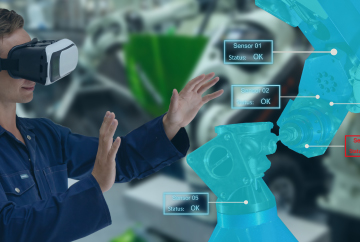In today's world, upskilling is no longer a mere option; it has become an absolute necessity. As technology advances, industries transform, and job requirements shift, individuals must continuously update their skills to remain competitive and relevant in the workforce.
Whether you are a seasoned professional or just starting your career, the ability to adapt and acquire new skills has become a cornerstone of success. Below are the excerpts from the interview with Ganesan Karuppanaicker, Chief Technology Officer, Birlasoft, where he highlighted the significance of employee upskilling.
How has data cataloging evolved over the years, and what technological advancements have contributed to its current significance in the tech industry?
Data cataloging has evolved significantly over the years, driven by the technological advancements and the increasing importance of data in the tech industry.
In an era where data's value is unmatched, organizations grapple with managing vast volumes of data effectively, and delivering contextual insights for informed decisions.
Many fall behind in modern data governance, resulting in limited data adoption. Gartner's forecast that 80% of expanding digital operations will fail by 2025 due to outdated data practices underscores this challenge. Forward-thinking data leaders adopt enterprise data catalogs, central to modern infrastructure.
Moreover, the integration of AI technologies and machine learning enhances data teams’ productivity through data catalog integrations. These advancements automate data discovery, governance, and metadata enrichment, ultimately enhancing data management efficiency and accuracy.
Automation and artificial intelligence have led to concerns about job displacement. How do you view the balance between technological efficiency and preserving job opportunities for the human workforce?
The introduction and integration of new-age technologies often raise concerns about job stability within the workforce. This pattern applies equally to automation and artificial intelligence. Striking the right equilibrium between optimizing technological efficiency and safeguarding job opportunities necessitates thoughtful deliberation from organizational leaders and HR managers. Rather than framing it as a conflict between talent and technology, the future work landscape is more likely to be a harmonious partnership between humans and machines, marked by collaborative synergy.
While AI and automation can undoubtedly enhance efficiency and accuracy in tasks, they lack the nuanced qualities that make humans unique. Embracing this collaboration allows the workforce to harness the strengths of both sides, resulting in more accurate outcomes, delivered faster. By automating routine tasks, human workers can focus on intricate problem-solving, innovation, and meaningful customer interactions.



